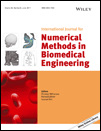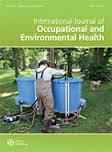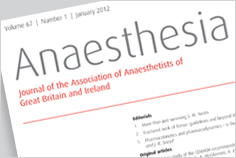 Last week, Emily Putnam-Hornstein, an associate professor at the University of Southern California, was reading what seemed like a noteworthy new report from the RAND Corporation on the child welfare system. But then she realized that some of the key estimates were off. When she sent the report to some colleagues, they agreed.
Last week, Emily Putnam-Hornstein, an associate professor at the University of Southern California, was reading what seemed like a noteworthy new report from the RAND Corporation on the child welfare system. But then she realized that some of the key estimates were off. When she sent the report to some colleagues, they agreed.
Curious, Putnam-Hornstein and some of her colleagues tuned into a RAND webinar on Thursday, May 25, to discuss the report, Improving Child Welfare Outcomes: Balancing Investments in Prevention and Treatment, which had been released two days earlier. They asked the report’s lead author, Jeanne Ringel, about the numbers, and Ringel responded by saying they were on-target. (Ringel recalls acknowledging that the numbers were conservative, but that revised inputs would not change the overall results substantially.) The Pritzker Foundation, which had funded the study, also dismissed the concerns.
Ringel, however, contacted Putnam-Hornstein to suggest a phone call. The Memorial Day holiday weekend was just about underway, so the call was scheduled for Wednesday, the 31st. In the meantime, Putnam-Hornstein and other researchers drafted a letter explaining their concerns. A conference call happened on the 31st, during which the critics shared their concerns, and also said that they’d publish the letter online if the report was not retracted swiftly.
Apparently, the critics were persuasive:
Continue reading RAND withdraws report on child welfare reform for further analysis
 A Rutgers computer scientist is retracting conference proceedings via an unusual channel: his personal blog.
A Rutgers computer scientist is retracting conference proceedings via an unusual channel: his personal blog. After issuing a retraction notice May 30 for a biomedical engineering paper, the journal has
After issuing a retraction notice May 30 for a biomedical engineering paper, the journal has  The Japanese Society of Anesthesiologists has permanently banned a co-author of notorious fraudster
The Japanese Society of Anesthesiologists has permanently banned a co-author of notorious fraudster  Past and present members of the editorial board of a public health journal have filed a formal complaint against the publisher after it
Past and present members of the editorial board of a public health journal have filed a formal complaint against the publisher after it 


 The fallout continues for a study conducted at a local CrossFit gym by researchers at The Ohio State University. First
The fallout continues for a study conducted at a local CrossFit gym by researchers at The Ohio State University. First